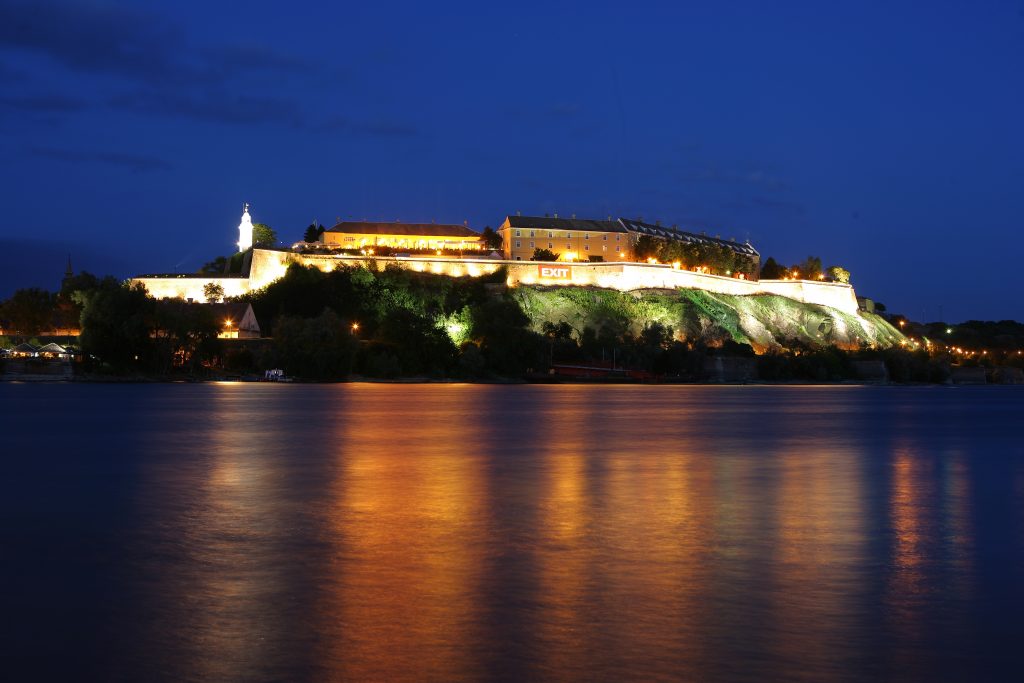For decades, Novi Sad has built its uniqueness on foundations of its multicultural character and numerous cultural and educational institutions it has
The latest news is that The European Commission proposed to move the title year of Novi Sad to 2022 instead of 2021 due to the corona virus pandemic. As for the cities bearing the European Capital of Culture title this year, Rijeka (Croatia) and Galway (Ireland), the European Commission proposed that the title should last until 30 April 2021, while Eleusis (Greece) and Timişoara (Romania) that were supposed to bear the title together with Novi Sad in 2021, should move the title year to 2023. “Rijeka and Galway deserve a fair opportunity for a comeback after taking a step backwards in order to show their resistance and creativity. Timişoara and Eleusis will use this extra time to overcome current difficulties in the cultural and tourism sector, and that they will mobilise important investments, including solidarity on the European level” said Margaritis Schinas, representative of the European Commission.

The tradition called European Capital of Culture
In 1985, Melina Mercouri, Greek Minister of Culture and Jack Lang, French Minister of Culture, came up with an idea to pick a European Capital of Culture once a year, in order to connect people in Europe and to raise awareness on common history and values. The project officially started in the same year, after resolution of EU Ministers of Culture. This initiative soon became one of the most prestigious events in Europe. Since then, more than 40 European cities have held the title European Capital of Culture. Each year, the selected cities (in 2015 these are Plzeň and Mons) are examples of richness and diversity of European cultures. The European Capital of Culture was established in order to emphasise richness and diversity of European cultures, strengthen cultural connections between citizens of Europe, connect people from different European countries, meet other cultures, promote mutual understanding and strengthen the sense of Europeanism. The most important heritage of the project is placing culture in the very centre of social development and seeing culture as the key factor for economic development of the society founded on knowledge, innovation and creativity. Many capitals of culture used this opportunity to develop cultural infrastructure, enable wider access to culture, improve image of their cities, develop tourist economy, and strengthen cultural and creative industries during the project and after it. Founding stones of the European Capital of Culture are an open hearts and minds and acceptance of diversity of audiences and artists.

Novi Sad – European Capital of Culture- how it was planned
The City of Novi Sad made the decision to bid for the title of European Capital of Culture in 2021, when it was supposed to be available for cities and countries outside the European Union for the first time. Following positive experiences of other capitals, the project Novi Sad 2021 was envisaged as a platform for development of cultural and creative potentials of the city, whose goal for the following period is to strengthen cultural vitality of the city, enable urban regeneration, improve international image and tourist offer of Novi Sad. In this way, while working on the candidacy for the European Capital of Culture in 2021, the City of Novi Sad developed its local concept and strategy of sustainable development of the cultural sector focusing on: strengthening institutions of culture, preserving cultural heritage, improving cultural participation, developing cultural and creative industries, decentralisation and inter-sector cooperation.

For decades, Novi Sad has built its uniqueness on foundations of its multicultural character, and numerous cultural and educational institutions it has. The most important competitive advantages of Novi Sad are exceptional geographic location at the middle of the Danube flow and crucial European water and land corridors, the fact that it is economic, administrative and cultural centre of the region, and its medium size. Recognised as a safe, healthy and encouraging place for life, work and investment, Novi Sad is a home for 26 national minorities. In the era of enlightenment and modernism, it was the centre of Serbian culture and creativity, with the Matica Srpska as the oldest Serbian cultural and scientific institution. Today, Novi Sad is a modern, university, cultural, tourist, scientific, political and administrative centre of the Autonomous Province of Vojvodina. It is a city of museum, galleries and theatres, rich in festival tradition and of international importance.
NOVI SAD 2021 is a platform for development of creative potentials of Novi Sad. This project should, above else, motivate and inspire both cultural workers and all citizens to re-examine current values and set new goals towards democratic cultural development of the city. Re-examination of modern identity of Novi Sad, revitalisation of cultural heritage, reconstruction of the existing and opening new spaces intended for culture, developing cultural participation of citizens, are just some of the priciples of cultural development that must be adopted in following seven years, on the way to winning this prestigious title.
Read more https://novisad2021.rs/en/